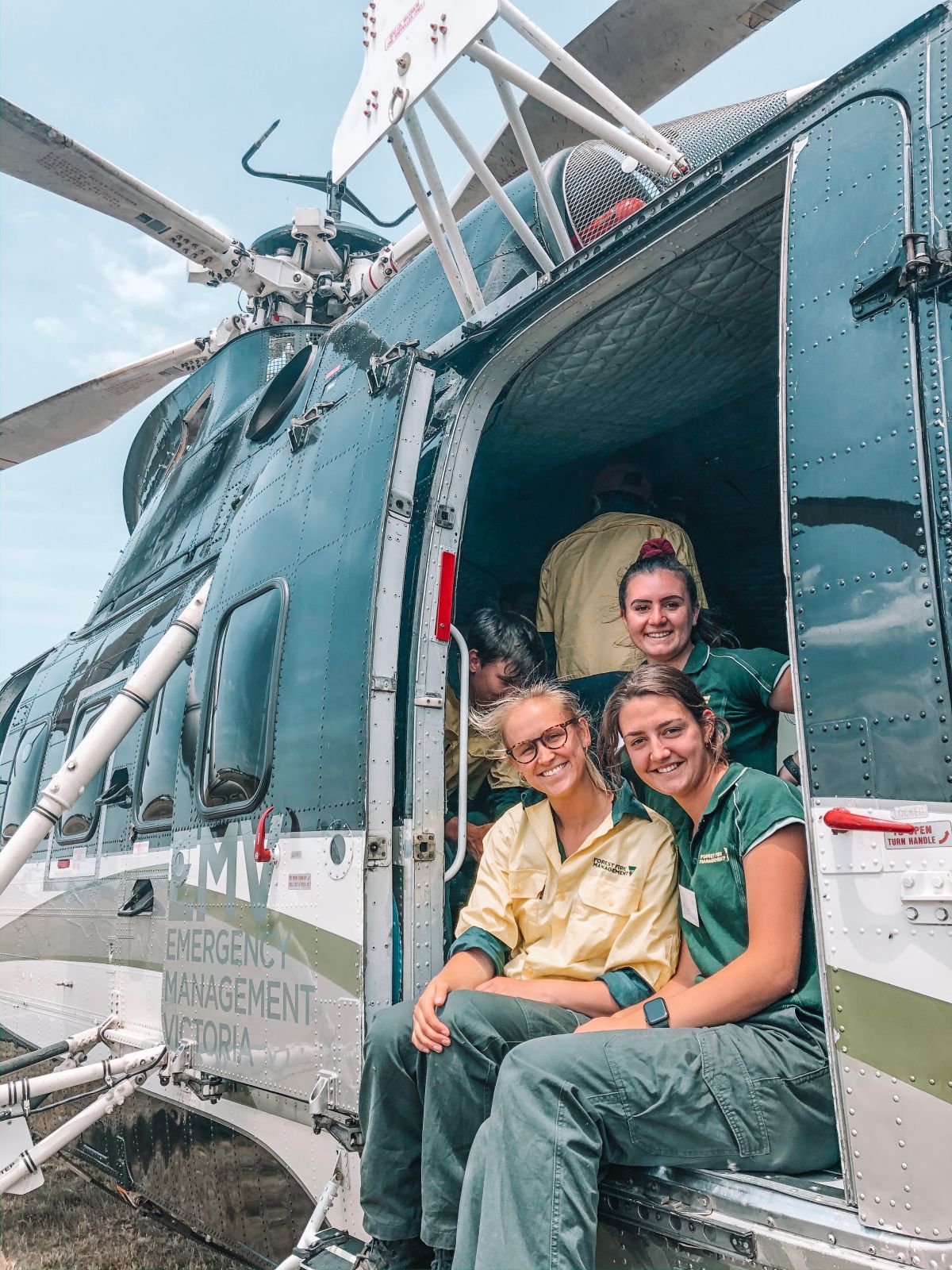
I wanted to do this work first and foremost because I wanted to spend a summer near where I grew up in Marlo in East Gippsland and be close to my family, and to spend some time up there in that incredible country and get out in the environment.
I’ve been studying environmental science for the past couple of years and I thought this would be an awesome opportunity to learn a lot and I’d heard that this particular job was going to give me a lot of life skills.
Also, anyone who’s ever lived in or near a country town knows there’s just an awesome sense of camaraderie, everyone comes together and I really wanted to experience that over a summer.
I’ve lived in the hustle and bustle of the city for a while and I just wanted to get away and experience something different. So I guess that’s what drew me in.
Rewarding job
I didn’t know fully what I was getting myself into until I got there and it’s honestly been extremely tough but probably the most rewarding job I’ve ever had.
I’ve learned things like how to use a chainsaw, how to four-wheel drive, fire behaviour, mapping skills, all sorts of different things.
I’ve also got to go to places that are literally untouched: bush that’s never been trekked through before, so it’s really awesome to have that opportunity and I think that’s a massive drawcard for me.
The fires in Gippsland started back in November on the day of my induction. We got to work and the fire alarms were going and our crew was sent out.
From then on, the fires were pretty much up in the bush for a solid month, then with those big spike days in January they started to move closer to communities and houses.
There were a couple of those days when we were worried about our own house. Just before new year we had a wall of fire surrounding us in Marlo, not within 20km of us at that point but it was scary knowing that the wind was pushing it towards us.
Often, it’s not the wall of fire that’s coming towards you, it’s the embers that get thrown up and fire creates its own weather so we were worried about embers falling on our house and starting new fires elsewhere.
Cape Conran fire
We had a fire east of Marlo that impacted my favourite beach at Salmon Rocks in Cape Conran, which was heartbreaking to see.
A few other assets were lost too, including a couple of holiday cabins but we managed to contain it before it reached Marlo. We were really lucky that it didn’t impact Marlo directly.
There’s so much that we deal with every day and that we get involved with as FFMVic firefighters. It’s really tough to understand that fire has such a negative impact on communities with such prolonged trauma. I had to help evacuate my grandma, we had our animals that we couldn’t relocate because the roads were blocked.
We cut off our horses’ manes to try and protect them that way and as the fires got closer there were quite a few people that work with me who lost their homes. One family that I’m quite close to lost their home in Sarsfield and relocated to their beach house near Cape Conran and then within a matter of weeks they were protecting that, hoping it wasn’t going to burn down as well.
Communities stoic
It’s heartbreaking but people are so positive about it. They grieve and then they keep going. It’s been so tough and I finally understand how much impact fires have on communities.
People are just so exhausted. They spend days and days trying to protect their homes, watering down the outside, making sure no embers are falling.
When you’re living in a community that’s so close, everyone’s worried about each other. It’s a hard stress for a really long period of time. I think it’s just been one thing after another.
It's hard working in those communities because you know a lot of people who have been affected. When you go to work you know people who have lost their homes or have had to evacuate. It’s been really tough but I know we can all come back from this.
Page last updated: 27/02/20